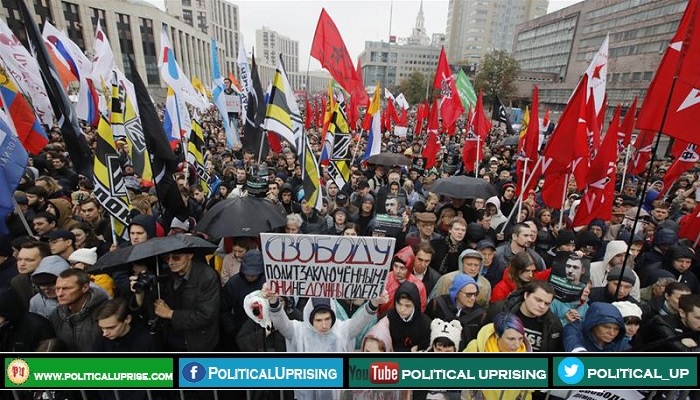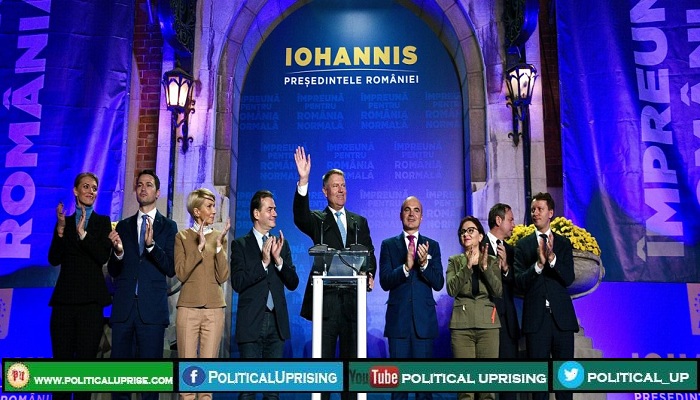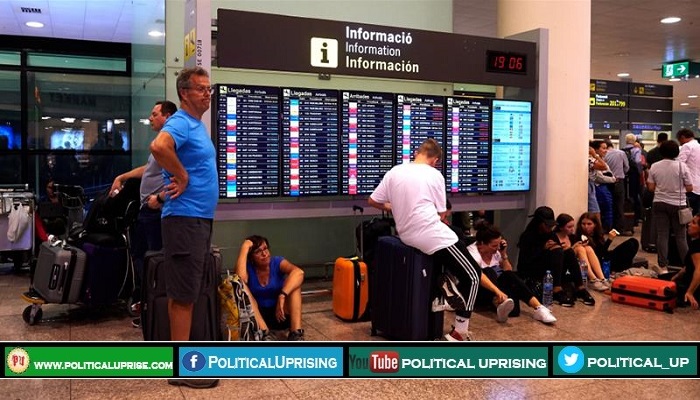Protesters has surrounded the Russian capital Moscow today and demanding to freed the opposition activists.
Protesters say opposition activists prosecuted in recent months must be freed as they allege campaign to stifle dissent.
Thousands have taken to the streets in Russia to demand the release of opposition protesters prosecuted in recent months in what the Kremlin’s opponents say is a campaign to stifle dissent.
Police estimated a turnout of 20,000 at a protest in central Moscow’s Sakharov Avenue during rain on Sunday. The demonstration was authorised, unlike several rallies in recent months where police briefly detained more than 2,000 people.
The demonstrators chanted “Let them go” and brandished placards demanding a halt to the “repressions” of opposition protesters several of whom had been charged but freed in recent weeks and thanked the crowd for putting pressure on the authorities.
Those protesters had been arrested at rallies that flared in July when opposition politicians were barred from a local election.
“We have to keep demanding to respect our rights because they have left us no choice but to protest in the streets,” said opposition leader Lyubov Sobol at the protest.
Allegations of police brutality and what many Muscovites see as harsh jail sentences have sparked an unusual public outcry.
“Some people even have been sentenced for up to three to four years just for attending unsanctioned rallies,” she said.
“Not only people from the opposition, but also some within government circles have been very upset and angry about these arrests.”
The current wave of demonstrations was triggered by the refusal of Moscow authorities to allow opposition politicians such as Sobol, an associate of top Kremlin critic Alexei Navalny, to participate in local elections.
The protests do not pose a threat to President Putin who won re-election by a landslide last year.
But they come as his ratings have slipped following years of falling real incomes and an unpopular move to hike the retirement age.
The sweeping, sometimes violent, crackdown on protests backfired when crowds of up to 50,000 people began to gather with wider political demands, while the opposition gained dozens of seats in the city’s parliament.
The summer protests became the biggest since the winter gatherings against Putin’s return to the Kremlin in 2011-12.
Various groups from priests to teachers have signed open letters in support of the victims of what is widely seen as a disproportionate and arbitrary clampdown.
Investigators dropped initial “mass riot” charges against six demonstrators but some remain in jail awaiting trial for alleged violence against police, while five people have already been sentenced to lengthy jail terms.
Actor Pavel Ustinov arrest earlier this month was met by an immense backlash after videos proving he was not guilty of hurting a police officer were not allowed to be shown in court.
Ustinov, 23, was sentenced last week to three and a half years in prison for hurting a policeman at a July demonstration, despite insisting he was an innocent bystander.
His case sparked a star-studded solidarity campaign and in an apparent backtrack. Last week Ustinov was freed pending his appeal hearing.
His defence team on Thursday called for Ustinov to be exonerated, while prosecutors asked for a non-custodial sentence, citing mitigating circumstances.
The court adjourned until Monday after the defence team asked to show video evidence from the protest, with a judge saying they did not have the equipment to watch it.
Ustinov’s appeal is expected to result in a much lesser sentence or even acquittal.
His case was taken up by high-profile lawyer Anatoly Kucherena, who has represented fugitive US whistle-blower Edward Snowden.
Protesters wave of demonstrations was triggered by the refusal of Moscow authorities to allow some opposition leaders to contest local polls.



